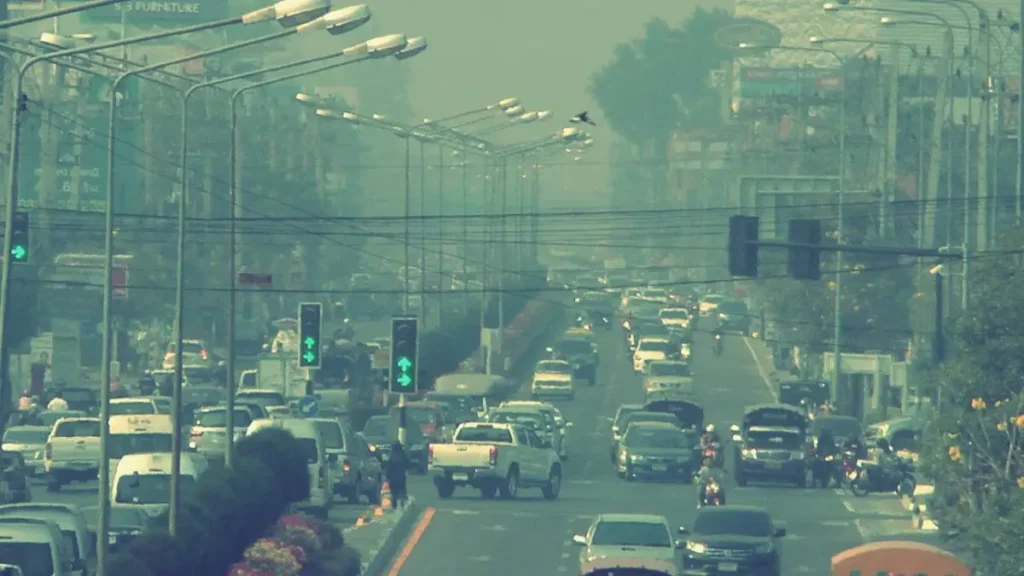Bangkok, plagued by unprecedented air pollution, sees the Thai government intervening drastically to try to curb the crisis. Faced with record pollution levels, the authorities announced a strengthening of controls to enforce the ban on agricultural burning, responsible for a significant portion of the fine particles darkening the sky of the capital.
PM 2.5 particles well beyond WHO limits
The situation is alarming: Bangkok ranks among the ten most polluted cities in the world, with PM 2.5 fine particle concentrations reaching six times the recommended limits set by the World Health Organization (WHO), according to measurements from IQAir. These extremely fine particles easily penetrate the lungs and exacerbate respiratory problems, especially for vulnerable individuals.
A strict ban on agricultural burning
In an official statement, the government warned that severe penalties would be imposed on any province or local authority that allowed stubble burning or neglected to implement preventive measures. This directive comes amid a pollution crisis, with more than 50 districts of Bangkok placed on orange alert, the highest level of risk for public health. The Thai government is thus putting pressure on local authorities to prevent the situation from worsening.
Maximum alert and protection of citizens
To protect the population, the authorities have distributed over 1.1 million protective masks, particularly to the most affected areas. This response follows a pollution peak last week, which led to the closure of 350 schools and free public transport for several days, to encourage citizens to avoid unnecessary travel.
A regional phenomenon exacerbated by unfavorable weather conditions
Pollution from agricultural burning is a recurring phenomenon in Southeast Asia, particularly during this time of year. However, the current weather conditions, with cold and stagnant air, significantly worsen the situation, as they prevent the dispersion of pollutants from agricultural burning and road traffic.
In this context, the Thai government hopes that these new measures, combined with increased vigilance on the ground, will help reduce pollution and improve air quality in the coming days.


